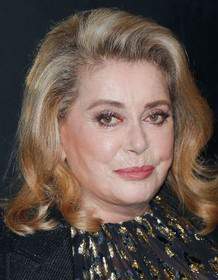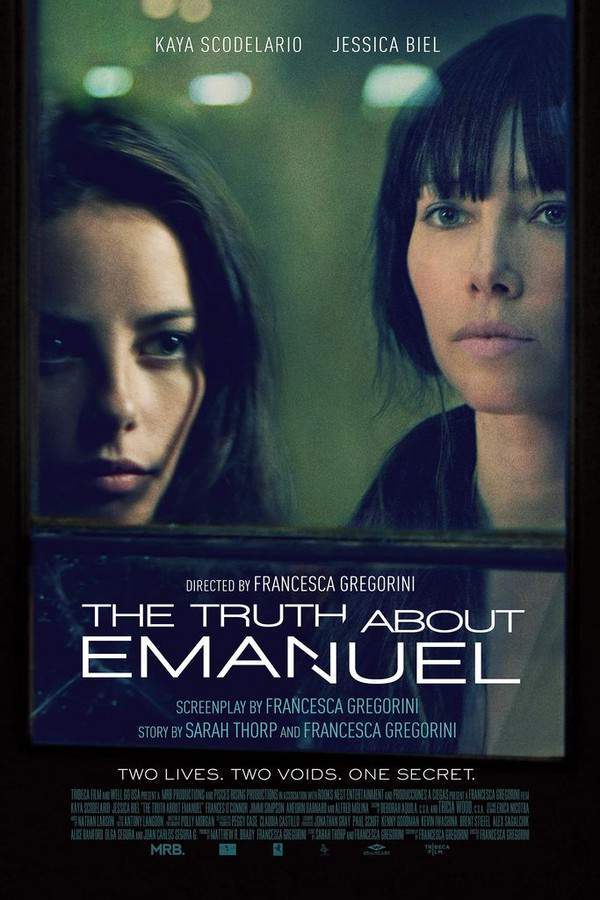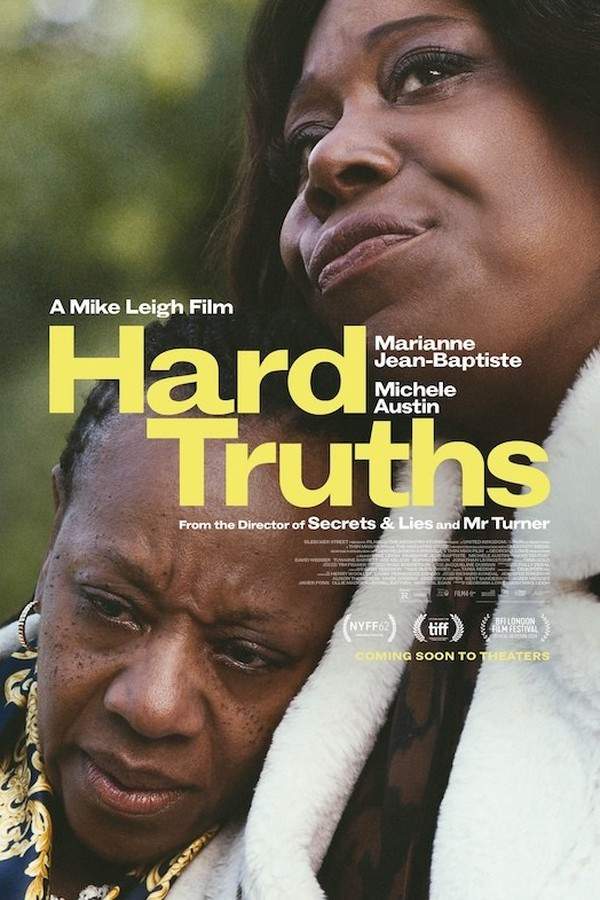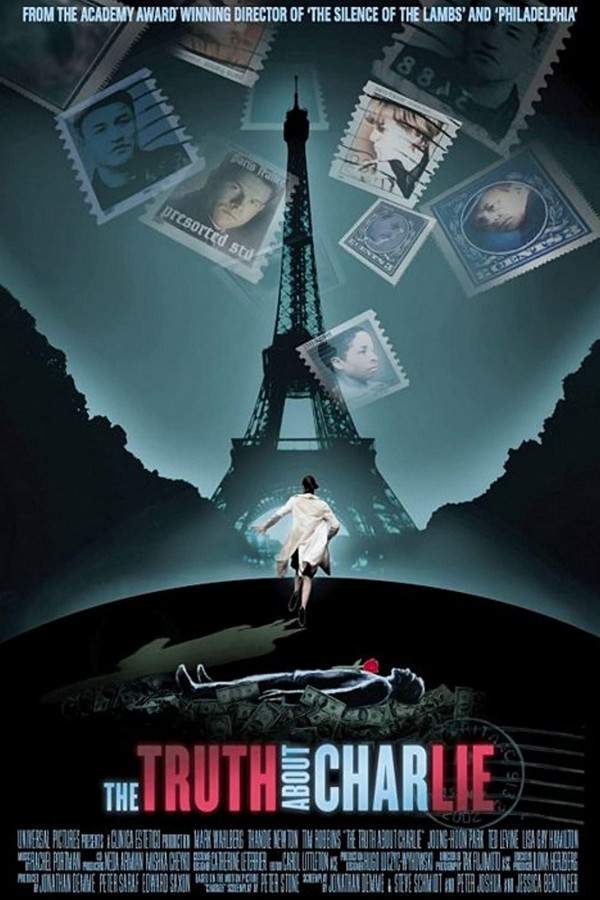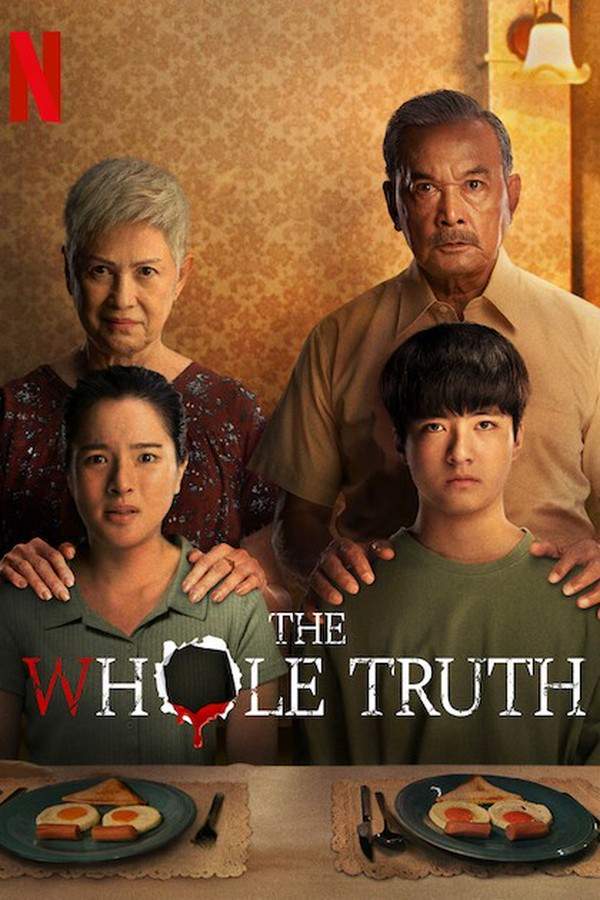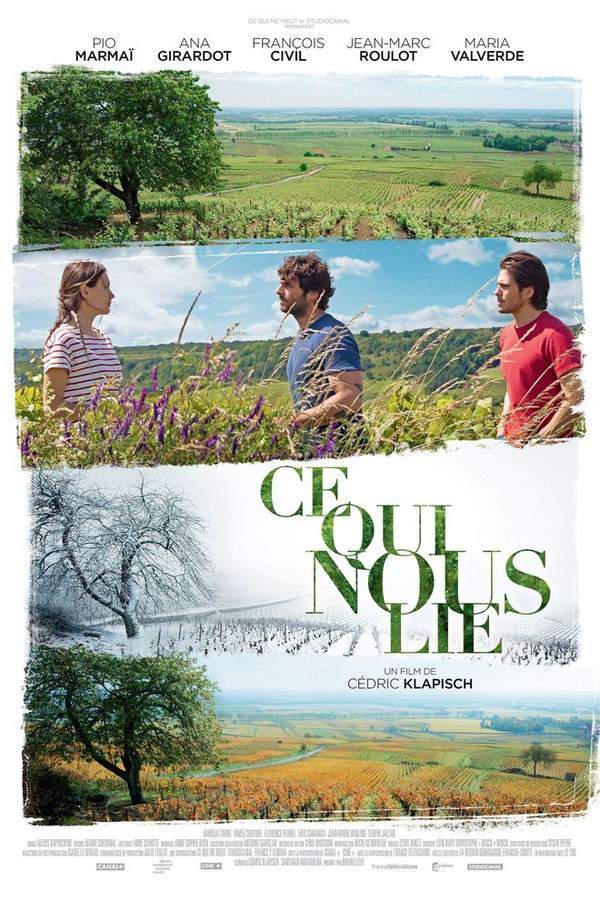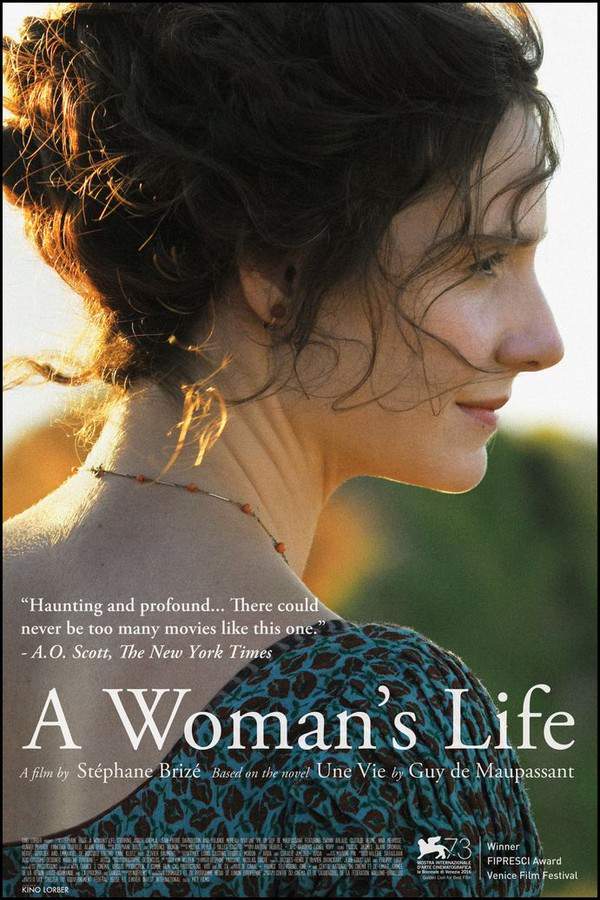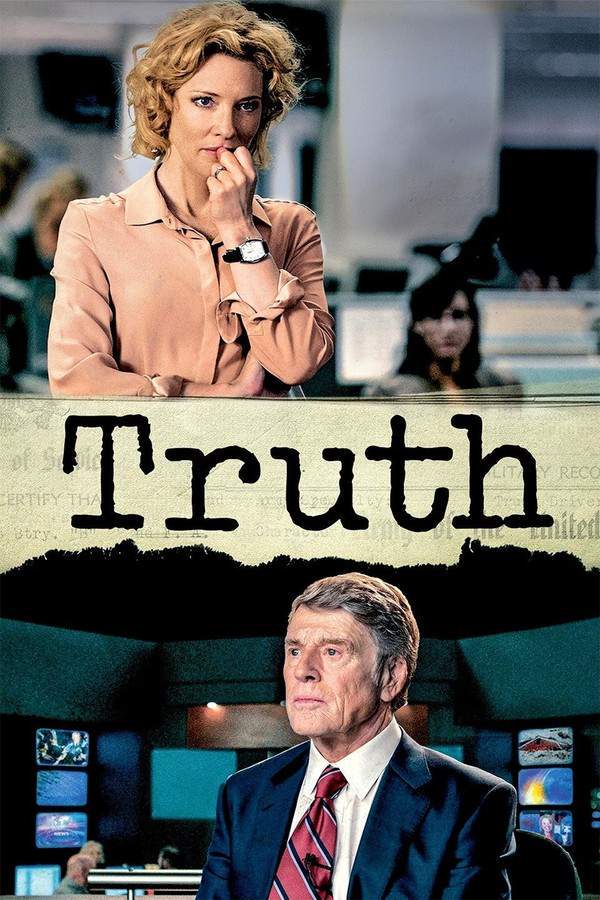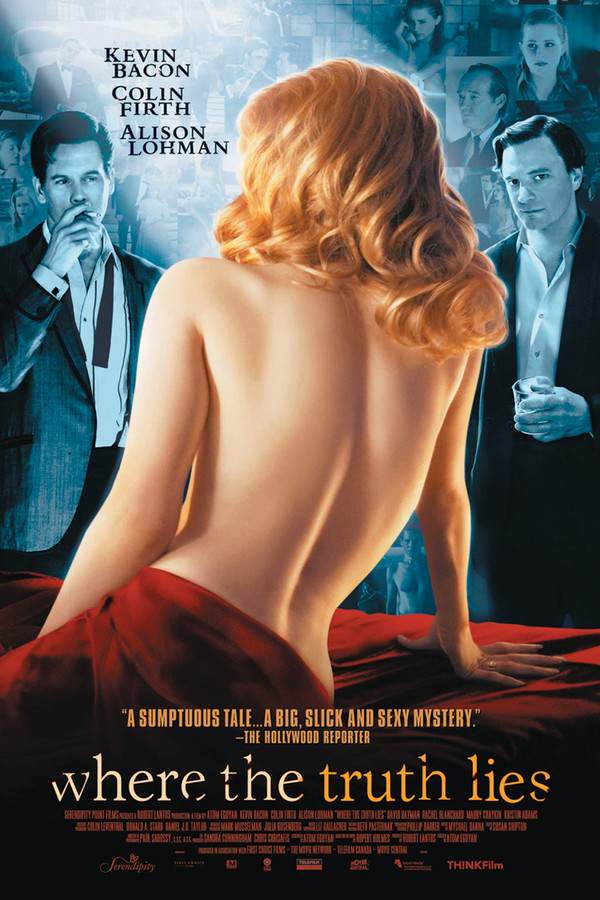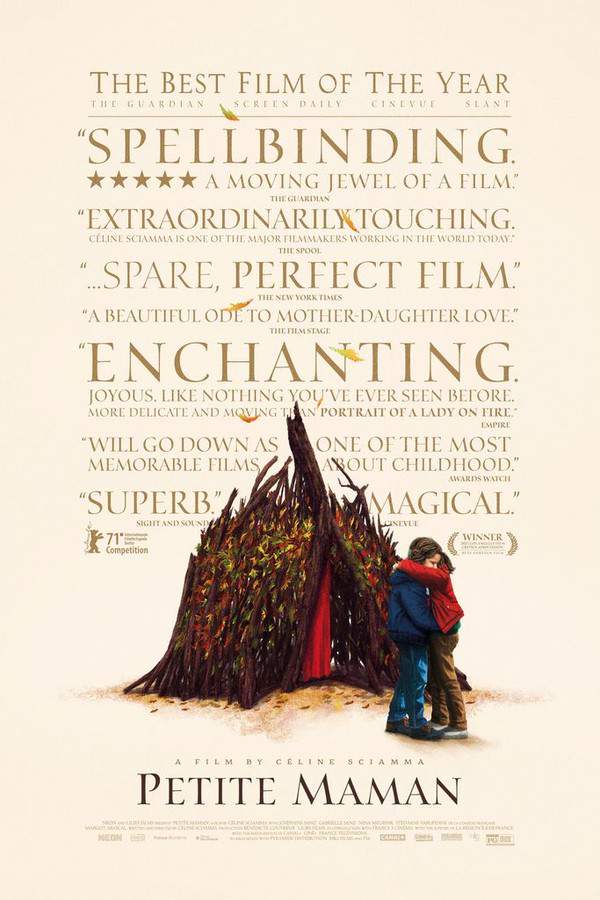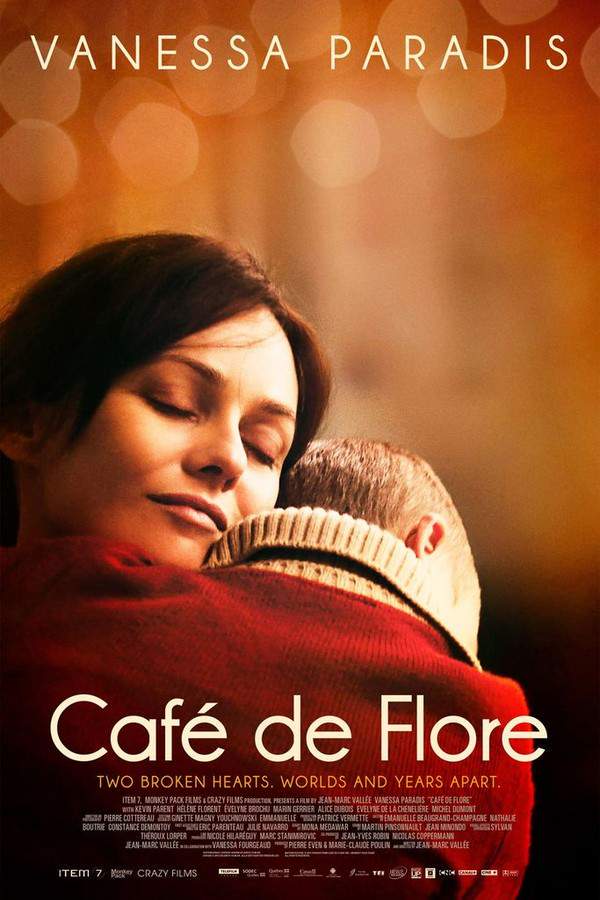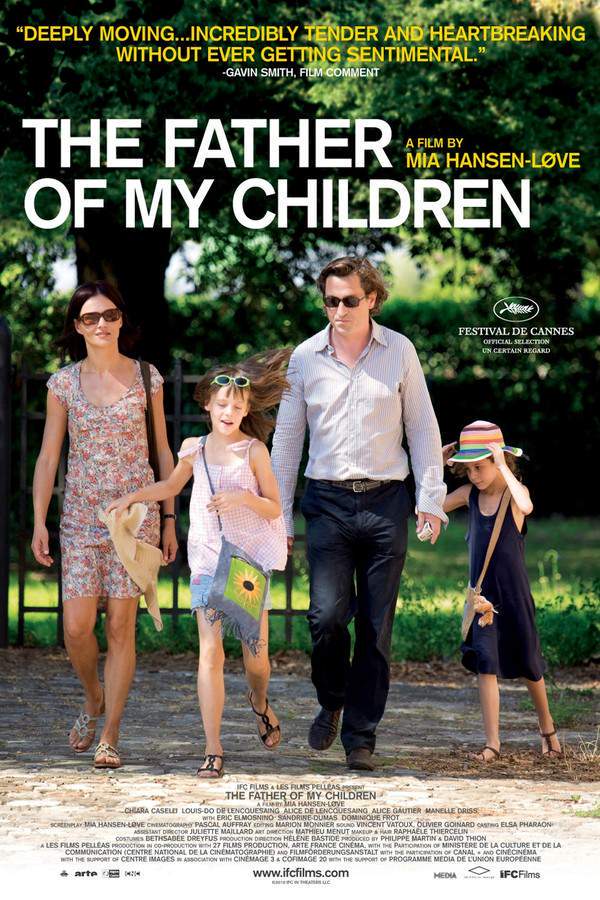The Truth 2020
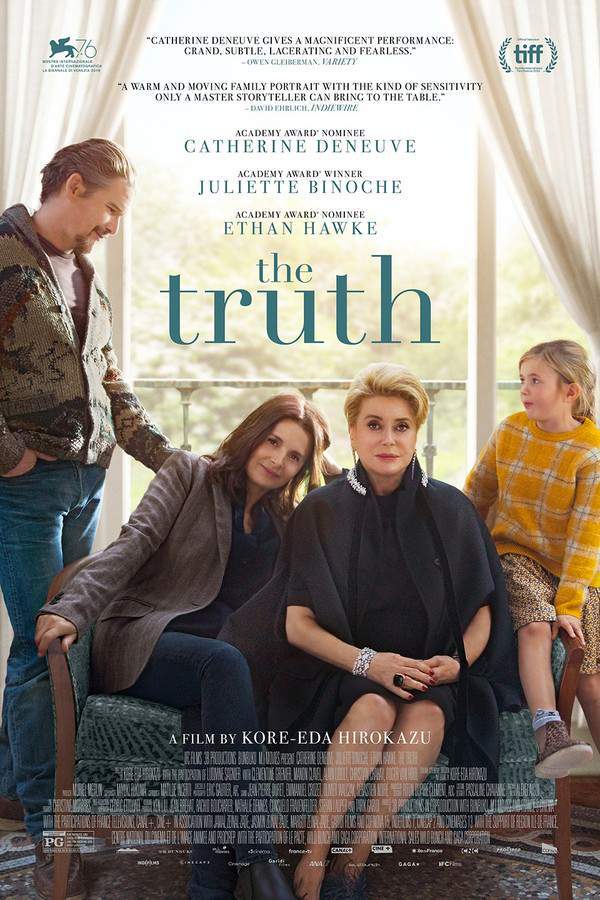
A renowned French actress, Fabienne Dujardin, finds her life and career scrutinized when her memoirs are published. This sparks a complex and emotionally charged conflict with her daughter, Lumir. As Fabienne revisits her past, her vulnerabilities are exposed, while Lumir grapples with her own uncertainties and reservations. The story explores their intricate relationship and the bittersweet nature of family history and legacy.
Does The Truth have end credit scenes?
No!
The Truth does not have end credit scenes. You can leave when the credits roll.
Meet the Full Cast and Actors of The Truth
Explore the complete cast of The Truth, including both lead and supporting actors. Learn who plays each character, discover their past roles and achievements, and find out what makes this ensemble cast stand out in the world of film and television.
External Links and Streaming Options
Discover where to watch The Truth online, including streaming platforms, rental options, and official sources. Compare reviews, ratings, and in-depth movie information across sites like IMDb, TMDb, Wikipedia or Rotten Tomatoes.
Ratings and Reviews for The Truth
See how The Truth is rated across major platforms like IMDb, Metacritic, and TMDb. Compare audience scores and critic reviews to understand where The Truth stands among top-rated movies in its genre.

The Movie Echo Score
The Truth excels through its nuanced performances and subtle emotional currents while occasionally revealing a deliberate pacing that may challenge some viewers. Observations highlight the measured direction and intimate framing tied to domestic tragicomedy traditions. Although narrative propulsion is modest, the film sustains engagement through thematic layers and relational tension. On balance, its introspective quality and strong ensemble work result in a thoughtful drama with enduring appeal.
The Movie Echo Score Breakdown for The Truth

Art & Craft
In terms of art and craft, the film’s direction employs understated visual compositions and careful editing to underscore emotional nuances. Critics note the frequent close-up framing that captures minute expressions, supported by a production design that reinforces domestic intimacy. While some find the pacing over-measured, the cohesive visual style ultimately enhances the film’s contemplative atmosphere.

Character & Emotion
When it comes to character and emotion, performances stand out as the chief asset, led by Catherine Deneuve’s composed depth and Juliette Binoche’s nuanced presence. Reviews praise the authentic chemistry that conveys intergenerational tension and reconciliation with subtle shifts in tone. The film’s emotional veracity rests on these embodied portrayals, lending sincerity to its domestic narrative.

Story & Flow
Regarding story and flow, the narrative unfolds with deliberate pacing that underscores familial nuances but limits dramatic propulsion. Critics acknowledge the observational strengths of the domestic tragicomedy structure, while others note a tendency toward schematic dialogue that feels overtly purposeful. This balance of introspective moments and sparse plot development yields a measured rhythm that may feel uneven for some viewers.

Sensory Experience
In sensory terms, the film’s soundscape and visual aesthetics contribute to an immersive yet restrained experience. Observers highlight the restrained score and sound design that emphasize quiet exchanges and ambient details. The visual style, marked by an understated color palette and tight framing, reinforces an intimate tone. Together, these elements craft a cohesive sensory atmosphere.

Rewatch Factor
As a rewatch prospect, the film offers layered character interactions and subtle thematic motifs that reward repeat viewings. Its focus on nuanced performances and domestic subtleties invites fresh insights on subsequent watches. However, the subdued pacing and modest plot innovation may limit its broader replay appeal. Overall, it maintains enduring interest for discerning viewers.

76
Metascore
6.7
User Score


87%
TOMATOMETER

62%
User Score

6.5 /10
IMDb Rating

3.3
From 4 fan ratings

4.67/5
From 3 fan ratings
Take the Ultimate The Truth Movie Quiz
Challenge your knowledge of The Truth with this fun and interactive movie quiz. Test yourself on key plot points, iconic characters, hidden details, and memorable moments to see how well you really know the film.
The Truth Quiz: Test your knowledge on the intricate family dynamics and emotional narratives of 'The Truth.'
Who plays the role of Fabienne Dangeville?
Full Plot Summary and Ending Explained for The Truth
Read the complete plot summary of The Truth, including all major events, twists, and the full ending explained in detail. Explore key characters, themes, hidden meanings, and everything you need to understand the story from beginning to end.
As the celebrated French actress Fabienne Dangeville (Catherine Deneuve) sits down for a revealing interview to promote her upcoming literary work, a vibrant family reunion quietly unfolds. Her daughter, Lumir (Juliette Binoche), a gifted screenwriter, arrives with her husband, Hank (Ethan Hawke), a charming actor, accompanied by their inquisitive granddaughter, Charlotte (Clémentine Grenier). Anticipation hangs in the air, heightened further when Luc (Alain Libolt), Fabienne’s manager, shares an influx of film opportunities that have come her way.
However, as the evening progresses, Lumir uncovers a disconcerting truth: her mother has already printed multiple copies of her forthcoming book—an oversight that Fabienne brushes aside, insisting she must have overlooked the manuscript. Later that night, as Lumir delves into the book, she is struck by the stark contradictions between its narrative and her recollections of their shared past. The following day, Fabienne entertains Charlotte’s fascination with magic by weaving a whimsical story about transforming someone into a turtle.
As tension mounts, Lumir’s concern deepens during an intense rehearsal where she confronts Fabienne about the book, which she views as a whitewashed portrayal of their complicated bond. The absence of Sarah from the narrative heightens her frustration. When Luc later mentions that Fabienne’s latest project, “Memories of My Mother,” features the up-and-coming actress Manon Lenoir (Manon Clavel), Lumir is taken aback by the unsettling similarities to her own life.
In a bold move, Lumir positions herself as Fabienne’s assistant on set, keenly observing the filming of this sci-fi drama, which depicts a mother who defies death by venturing into space, returning to Earth intermittently, leaving her daughter behind to age. Fabienne portrays the mother in this poignant narrative that intricately explores themes of time and memory. As rehearsals unfold, the production team is captivated by Manon’s performance, but Fabienne’s expression reveals her skepticism towards Manon’s interpretation of her role.
In a shocking twist, Luc shares his plans to retire and move in with his son’s family, revealing an extensive, previously unknown family tree filled with grandchildren. Lumir’s probing question about this sudden shift leads Luc to express his feelings of being erased from Fabienne’s memoirs, urging Lumir to manage her effectively, suggesting their partnership could relieve some of the emotional weight they carry.
Suddenly, Pierre (Roger Van Hool), Fabienne’s ex-husband, makes an unexpected appearance at the family gathering, raising eyebrows with suspicions of ulterior motives. His sudden arrival stirs Lumir’s sharp observation regarding Pierre’s belief that he deserves compensation for Fabienne’s publication about him—a misconception quickly dispelled by Lumir’s revelation that the book absurdly states Pierre has passed.
As production begins on Fabienne’s memoir, Lumir witnesses poignant moments where she assumes the role of mother to her daughter, reflecting their tumultuous dynamic. An impromptu suggestion from Manon draws a sardonic remark from Fabienne about their familial bond. This sentiment resonates as Manon collaborates with Ludivine Sagnier, portraying her younger character, ultimately striving for emotional depth in their performances.
Tensions rise as Fabienne downplays Pierre’s involvement, while Lumir persistently confronts her about stories she had shared from her childhood with Manon, which Fabienne adamantly denies. Amidst family fray, Jacques (Christian Crahay), Fabienne’s current husband, steps in to prepare dinner for the family, including Pierre.
Navigating this emotional landscape, Fabienne confides in Charlotte that Pierre was metaphorically the “turtle” in her life—a role that carries weight in their discourse. When Pierre offers his congratulations to Hank for his acting endeavors, Fabienne interprets this as an opportunity to trivialize Hank’s television success in an attempt to maintain control over her narrative. Lumir capitalizes on the moment to confront Fabienne about her acclaimed César-winning performance, alleging that it was wrongfully appropriated from Sarah—an assertion backed by Pierre, who produced the film in question.
As Lumir ventures to suggest that Sarah’s tragic drowning was indirectly linked to Fabienne’s actions, Fabienne vehemently contests this, insisting it was an accident while simultaneously acknowledging her flaws as a mother and friend—a notion she cannot seem to escape, despite her prowess as an actress. Overwhelmed by Lumir’s words, Fabienne finds herself in tears, prompting Hank to retreat, grappling with his own struggles, which includes seeking solace in alcohol during this emotional upheaval.
The next day, Charlotte surprises everyone with a discovery in the garden—a turtle, just as Pierre mysteriously vanishes. Curious, Charlotte approaches Fabienne, who cryptically reveals that Pierre has been returned to his rightful owner. However, when Jacques probes about this truth, Fabienne fabricates a story, attributing the blame to Lumir for divulging information to Charlotte. As filming for Manon progresses, Fabienne becomes increasingly distracted, her focus wavering amidst interruptions, evident in her stumbling during a take, yet ultimately delivering a stunning performance.
In the midst of this chaos, Fabienne expresses her desire for Luc’s return while grappling with uncertainty about their relationship. Lumir offers insight, suggesting an apology may be in order to mend their bond. As the family gathers for dinner, Fabienne candidly expresses Lumir’s longing for reconciliation, yet falters when it comes to taking the initiative to apologize. Faced with mounting frustrations, Fabienne declares her intent to retire from acting, depressed by Manon’s perceived mockery.
In a last-ditch effort, Lumir implores Fabienne to confront her insecurity and acknowledge Manon’s exceptional talent. Instead of succumbing to despair, Fabienne rallies herself to return to set, where she intensifies her dedication and successfully completes her scenes. Lumir praises her in a significant moment, prompting Fabienne to contemplate the similarities between her life’s narrative and that of Sarah, an artist whose legacy cast a long shadow over her career.
In a moment of profound realization, Fabienne praises Manon, only to recognize she is reflecting on qualities she once admired in Sarah. As a testament to this connection, Fabienne gifts Manon with Sarah’s cherished dress—a gesture rich with history. Their conversation unfolds with Manon inquiring about Sarah’s character and talent, prompting Fabienne to regale her with tales of Sarah’s unique gift and allure.
Sharing poignant revelations with Lumir, Fabienne confides that while she did attend Lumir’s school play, she chose to keep it a secret to avoid burdening her daughter. Unveiling her emotions, Fabienne admits her envy over Sarah’s ability to capture Lumir’s admiration—a sentiment that lingers. Sensing an opportunity for closure, Lumir inquires why this vital chapter was omitted from their shared history. Fabienne hints at a potential second edition while Lumir seizes the moment, embracing her mother with tears, proclaiming that she must indeed possess magical powers to be on the verge of forgiveness.
Meanwhile, Charlotte shares her dreams of becoming an actress, expressing a heartfelt hope to witness her journey from beyond—a notion that resonates deeply with Fabienne. Returning to Lumir, it becomes apparent that this heartfelt moment may have been sculpted by Lumir herself, leaving her to reflect on its authenticity.
As Luc reenters the narrative, Fabienne chooses to present him with a homemade medal, symbolizing her newfound appreciation for his role in her life. In a wave of inspiration, she requests a reshoot of “Memories of My Mother,” convinced that she can breathe new life into the scene. Lumir, ever-curious, questions Luc about his intentions to leave their lives, but he remains just as cryptic as before. Together, the family sets forth once more, with Fabienne cherishing the Parisian winters that seem to draw them all closer together.
Movie Themes and Keywords
Discover the central themes, ideas, and keywords that define the movie’s story, tone, and message. Analyze the film’s deeper meanings, genre influences, and recurring concepts.
Similar Movies You Should Know About
Browse a curated list of movies similar in genre, tone, characters, or story structure. Discover new titles like the one you're watching, perfect for fans of related plots, vibes, or cinematic styles.
Quick Links: Summary, Cast, Ratings, More

What's After the Movie?
Not sure whether to stay after the credits? Find out!
Explore Our Movie Platform
New Movie Releases (2025)
Famous Movie Actors
Top Film Production Studios
Movie Plot Summaries & Endings
Major Movie Awards & Winners
Best Concert Films & Music Documentaries
© 2025 What's After the Movie. All rights reserved.



